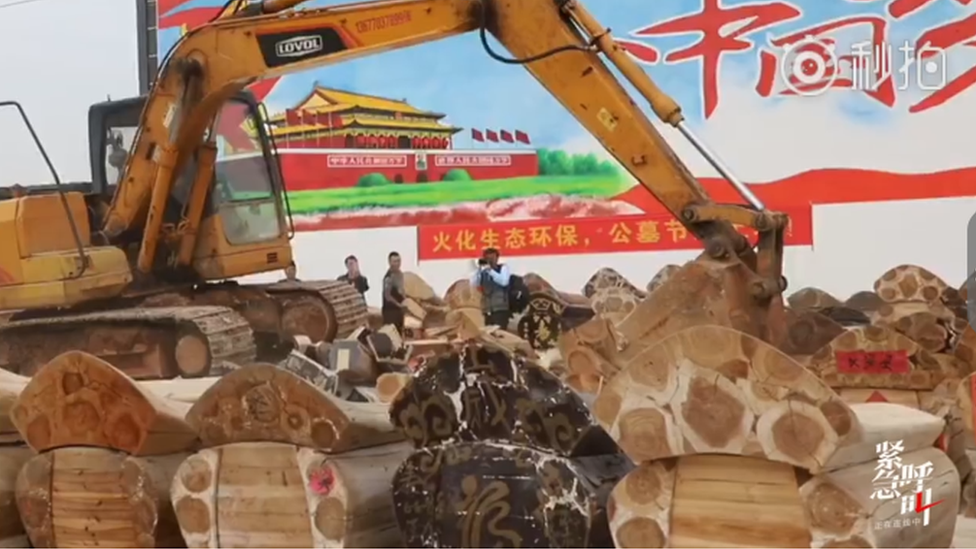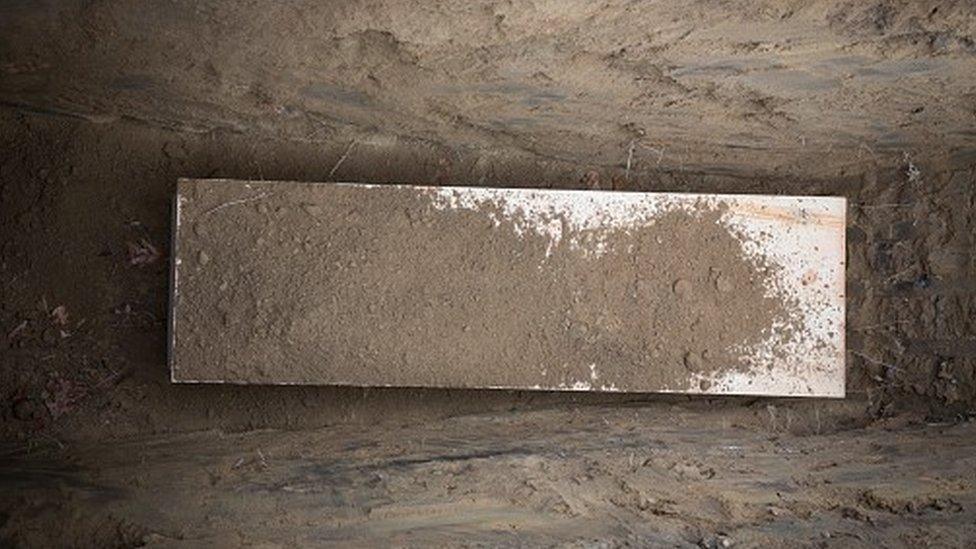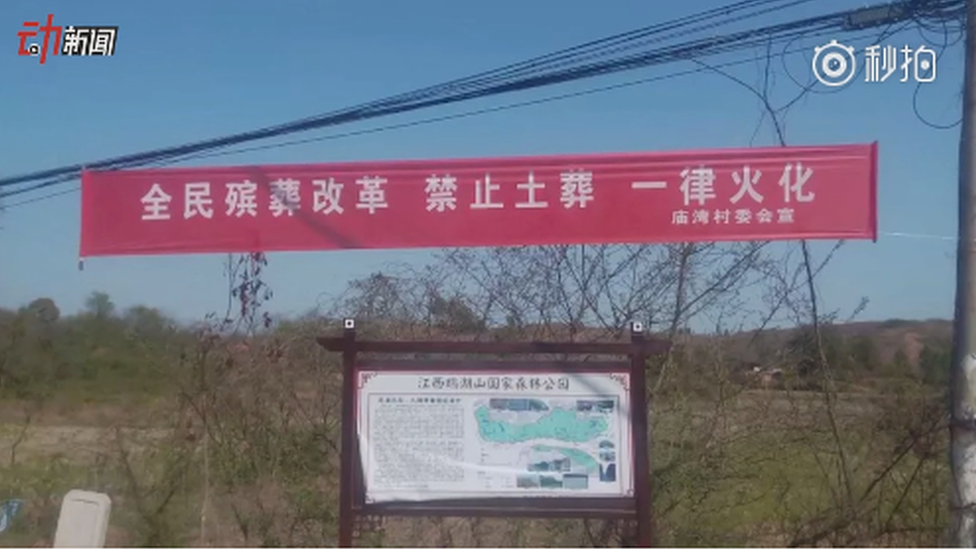Why Chinese are 'turning in' their graves
- Published

Thousands of coffins have been destroyed in southern Jiangxi province
A controversial campaign for Chinese villagers to give up their coffins in favour of environmentally friendly cremations is raising eyebrows in China.
Influential news website The Paper, external highlighted on 23 June that more than 5,000 residents in south-east Jiangxi province gave up coffins over the weekend, with some reports saying that many were "forcibly" made to do so.
Media are sharing pictures of wooden coffins piled up onto carts, or being transported down from high buildings for removal in the city of Gao'an.
China is attempting to change public perceptions about traditionally favoured burials, and encourage cremations, in order to tackle its land resource problem.
Traditionally, Chinese people believe that burial is "the proper way to handle a dead body", the official Xinhua News Agency, external says.
Chinese people invest heavily in funerals and coffins, believing that doing so is a way of showing filial piety towards their ancestors.
'Funeral reform' drive

Burials are favoured over cremations in China
According to The Paper, three-wheeled vehicles could be seen going to and from one township in Gao'an over the weekend, collecting coffins from people's homes.
It says that one 94-year-old resident was hard of hearing, and didn't know what was going on until he was shown a piece of paper and told that the policy for funerals in the region had changed.
He then "immediately handed over his coffin, which he had stored for many years," The Paper says.
The national Global Times, external newspaper says that residents were compensated some 2,000 yuan ($308; £230) for every coffin they surrendered. However it says that this is considerably less than locals spend on average making one, saying that most people spend at least 3,000 yuan having one built.
In some rural areas, many people prepare coffins in advance, the Global Times says.
The Beijing News adds that some residents in the province who kept their coffins in an earlier drive faced being fined.
This was the case in April, when more than 1,000 wooden coffins were destroyed in the nearby city of Shangrao, Global Times, external reports.
'Heartbreaking'
Users of the popular Sina Weibo, external microblog have been critical of Jiangxi province's funeral reform drive.
Last week, thousands took to the microblog criticising the drive for not being compassionate towards peoples' feelings, with many saying that taking away somebody's coffin was taking away an emotional crutch.
"In the eyes of the government, the Han people are not people," says one user, referring to China's majority ethnic group.
Another user calls the story "heartbreaking", and one user says, "I've been reading the news for many years, and nothing has made me feel more unsettled."
'100% by the end of 2020'

A banner reads "the whole nation is going through funeral reform - prohibit burials, and always have cremations"
China's problem with finding land space to bury its dead is well documented.
In April 2016, the official Xinhua News Agency, external noted the problem in the capital Beijing. "Most cemeteries are full, so burying in neighbouring cities have become popular. About 80% of plots in cemeteries in Hebei cities surrounding Beijing are sold to Beijing residents," it said.
But the country has a five-year plan to tackle its land resource problem for burials.
In 2016, nine of China's central government departments issued joint guidelines on how the country could further promote eco-friendly funerals to save land resources by 2020.
The government stepped up its promotion of sea burials and tree burials - the latter being where the body is cremated and a tree is planted amidst the ashes.
In densely populated urban areas, it also promoted vertical burials and smaller tombs, and encouraged family members to share the same tomb.
But it is ultimately pushing for the public to move away from wanting to be buried, in favour of being cremated.
The Ministry of Civil Affairs told official media in 2014 that it was "targeting a cremation rate of close to 100% by the end of 2020".
BBC Monitoring, external reports and analyses news from TV, radio, web and print media around the world. You can follow BBC Monitoring on Twitter, externaland Facebook, external.